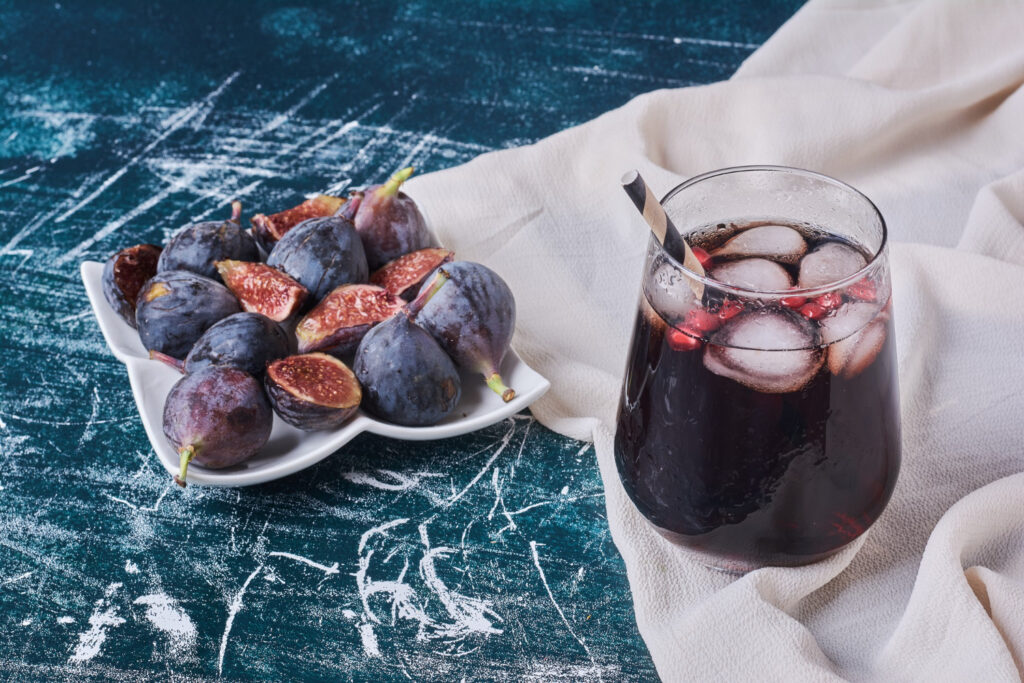
In this article
Prune juice, derived from dried plums (Prunus domestica L.), is often used as a natural remedy for constipation due to its laxative properties. Although studies on prune juice are not as extensive as those on whole prunes, the juice offers several vitamins, minerals, and potential antioxidant benefits.
Treats Constipation
Prune juice is most well-known for its ability to relieve chronic constipation, defined by fewer than three bowel movements per week, hard or lumpy stools, difficulty in passing stools, or a sensation of incomplete evacuation. About 16% of adults under 60 and 33% of adults over 60 experience constipation symptoms.
In one study, adults aged 20–75 with chronic constipation consumed 54 grams (about 2 ounces) of prune juice daily for eight weeks. They reported significant reductions in hard and lumpy stools without increased gas, diarrhea, or urgency, and no negative side effects. This effectiveness is likely due to prune juice’s sorbitol, fiber (especially pectin), and polyphenols. Sorbitol, a natural sugar alcohol, helps absorb water into the gastrointestinal (GI) tract, aiding stool movement. Fiber adds bulk to stools, easing their passage, and polyphenols may enhance gut microbiota health, supporting digestive function.
Another study involved 54 volunteers with an average age of 44, who drank 125 milliliters (about 4 ounces) of prune juice twice daily for two weeks. Participants reported fewer days with difficult defecation but experienced increased gas during this period.
May Help Regulate Blood Pressure
High blood pressure is a significant risk factor for heart disease and stroke. An older study involving 259 people with pre-hypertension found that consuming prune juice and prunes significantly reduced blood pressure compared to drinking only water. Participants in the single-dose group saw reductions in both systolic and diastolic blood pressure, while the double-dose group saw a significant reduction in systolic pressure.
Other Potential Benefits
Prune juice may share several health benefits with whole prunes, such as promoting a healthy gut microbiome, supporting bone health, lowering cholesterol, and protecting against heart disease and type 2 diabetes. Prune juice is rich in phenolic compounds, which have anti-aging, anti-inflammatory, and antioxidant properties. It also contains essential vitamins and minerals like potassium and vitamin C.
Nutrition of Prune Juice
One cup of 100% prune juice provides:
- Calories: 176
- Fat: 0 g
- Sodium: 10 mg
- Carbohydrates: 43 g
- Fiber: 2.5 g
- Added sugar: 0 g
- Protein: 1.5 g
- Iron: 3 mg (16% DV)
- Potassium: 685 mg (14.5% DV)
- Vitamin C: 10 mg (11% DV)
Prune juice is notably high in iron, potassium, and vitamin C. Iron is crucial for oxygen transport in the blood, potassium supports heart and muscle function and helps counteract the effects of sodium on blood pressure, and vitamin C aids in healing, immune function, and maintaining healthy skin, bones, and connective tissue.
Risks of Prune Juice
While generally safe, prune juice’s laxative effect can cause gas or diarrhea, especially in large quantities. Gradual introduction to the diet can help mitigate these effects. Prune juice also contains acrylamide, a potential carcinogen formed during carbohydrate heating. Frequent consumption might lead to acrylamide intake levels similar to those from french fries. Additionally, some individuals may be allergic to prunes and prune juice.
Tips for Consuming Prune Juice
One cup of prune juice counts as one serving of fruit. The recommended daily fruit servings vary based on individual dietary needs, with two servings suggested for a 2,000-calorie diet. Prune juice can be enjoyed on its own or mixed into smoothies, brewed tea, mocktails, or cooking sauces.
By integrating prune juice into a balanced diet, you can leverage its potential health benefits while ensuring a diverse and nutritious intake.
A Quick Review
Prune juice, derived from dried plums, is renowned for its constipation-relieving properties due to its sorbitol, fiber, and polyphenols content. Additionally, prune juice may help regulate blood pressure and offers various vitamins and minerals, including iron, potassium, and vitamin C. While generally safe, excessive consumption can lead to digestive issues. Its health benefits, combined with its nutrient-rich profile, make prune juice a valuable addition to a balanced diet.











